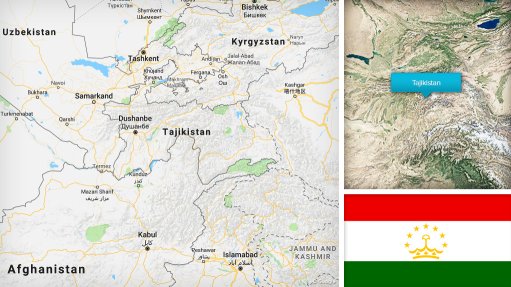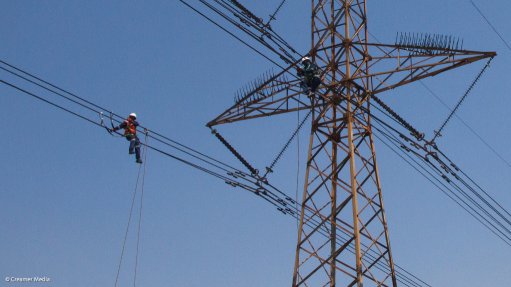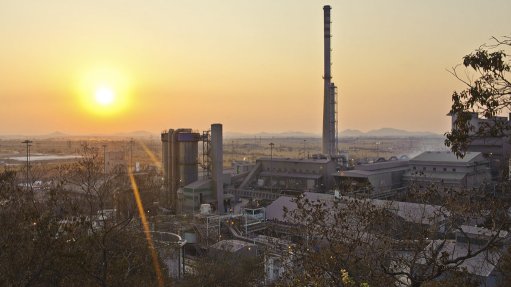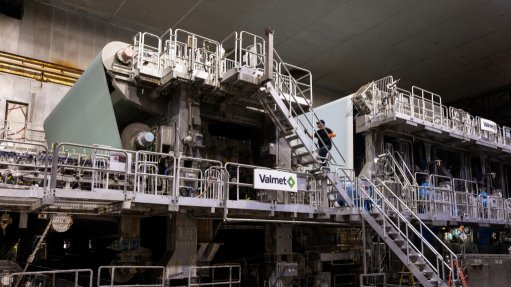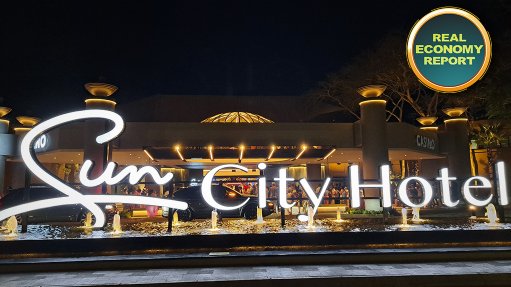SABS calls for stricter self-regulation around hazardous waste disposal
Since the global outbreak of Covid-19, the South African Bureau of Standards (SABS) has been refocusing its attention on improving its services to assist in the fight against the pandemic and the hygiene matters related to controlling the spread of infection.
To this end, the SABS says the collection and disposal of hazardous waste is a critical issue that requires greater self-regulation by the industry, as well as increased vigilance and insistence on the use of certified containers by authorities.
The SABS announced that it would conduct more unannounced inspections related to South Africa National Standard (SANS)/International Organisation for Standardisation (ISO) 14001 and SANS/ISO 45001 to ensure that companies meet the required statutory and regulatory requirements for the disposal of hazardous waste.
“Hazardous waste is any waste that has the potential to threaten the health and safety of our communities and the environment. Once medical products have been used, they need to be contained and disposed of in a controlled manner to ensure there is no leakage, spillage or dispersion.
“While the focus, during the Covid-19 pandemic, has largely been on the detection and prevention of infection, there needs to be increased vigilance on the containment and disposal of all medical waste products,” says SABS lead administrator Jodi Scholtz.
Scholtz explains that the end-to-end handling process of containing and disposing of hazardous waste must be guided by the various existing national standards and quality management systems.
In addition, independent and accredited authorities, such as the SABS, can offer verification and certification that hazardous waste is being handled, contained and disposed of responsibly and without threat to people, fauna, flora and the environment.
“While there are several specifications and regulations that guide the use, containment, transport and disposal of hazardous waste – there is no overarching independent verification of the overall process.
“Various service providers are involved at different stages of the process and there is a need for tighter controls of the overall process. Even though discussions are in progress with various regulatory stakeholders, all industries that are responsible for the disposal of hazardous materials and of its packaging or used products need to insist that service providers are using certified containers.
“If self-regulation within the industry becomes more robust, there will be a reduced need for additional strain on regulatory authorities to enforce compliance,” explains Scholtz.
The SABS has been testing packaging and containers used for the removal of hazardous waste since 2005, and it has a dedicated and operational packaging laboratory.
The SABS is also able to offer inspection services to all spheres of government and the private medical industry to ensure the containment, collection and disposal of hazardous waste is performed according to accepted national standards.
The SABS states that potential loopholes in the current certification of packaging for the disposal of hazardous medical waste are around manufacturers supplying their own samples for testing. This is problematic as there is no indication or verification of the production processes.
It is possible that a “golden sample” is prepared for testing and subsequent reproductions are not subjected to the same processes.
Further, there is no regulation that guides the resale of tested products. For example, a company that manufactures substandard products can resell to others and these products threaten the health and safety of the country.
The SABS adds that the use of the containers is currently unregulated and lacks any sort of inspection services. Inspection needs to include the storage of these containers of hazardous waste while awaiting transportation for disposal and the disposal processes themselves.
“It is incredibly dangerous to our communities, our water supply and our environment if medical and hazardous waste is handled, transported and disposed of irresponsibly.
“There are standards and processes that can be applied to each step in the collection and disposal of hazardous waste. The SABS has the capability and expertise to assist regulators in ensuring full compliance to regulation to ensure the continued safety of our people and our resources,” the bureau notes.
Article Enquiry
Email Article
Save Article
Feedback
To advertise email advertising@creamermedia.co.za or click here
Comments
Press Office
Announcements
What's On
Subscribe to improve your user experience...
Option 1 (equivalent of R125 a month):
Receive a weekly copy of Creamer Media's Engineering News & Mining Weekly magazine
(print copy for those in South Africa and e-magazine for those outside of South Africa)
Receive daily email newsletters
Access to full search results
Access archive of magazine back copies
Access to Projects in Progress
Access to ONE Research Report of your choice in PDF format
Option 2 (equivalent of R375 a month):
All benefits from Option 1
PLUS
Access to Creamer Media's Research Channel Africa for ALL Research Reports, in PDF format, on various industrial and mining sectors
including Electricity; Water; Energy Transition; Hydrogen; Roads, Rail and Ports; Coal; Gold; Platinum; Battery Metals; etc.
Already a subscriber?
Forgotten your password?
Receive weekly copy of Creamer Media's Engineering News & Mining Weekly magazine (print copy for those in South Africa and e-magazine for those outside of South Africa)
➕
Recieve daily email newsletters
➕
Access to full search results
➕
Access archive of magazine back copies
➕
Access to Projects in Progress
➕
Access to ONE Research Report of your choice in PDF format
RESEARCH CHANNEL AFRICA
R4500 (equivalent of R375 a month)
SUBSCRIBEAll benefits from Option 1
➕
Access to Creamer Media's Research Channel Africa for ALL Research Reports on various industrial and mining sectors, in PDF format, including on:
Electricity
➕
Water
➕
Energy Transition
➕
Hydrogen
➕
Roads, Rail and Ports
➕
Coal
➕
Gold
➕
Platinum
➕
Battery Metals
➕
etc.
Receive all benefits from Option 1 or Option 2 delivered to numerous people at your company
➕
Multiple User names and Passwords for simultaneous log-ins
➕
Intranet integration access to all in your organisation






